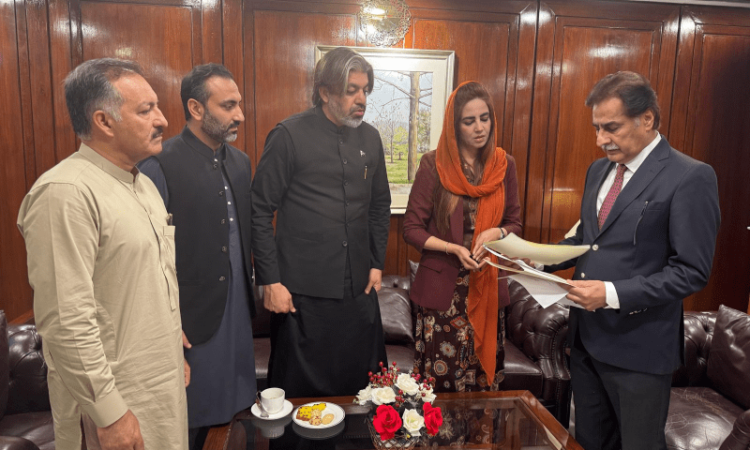The Pakistan Tehreek-e-Insaf (PTI) on Thursday submitted a resolution in the National Assembly opposing the federal government’s plan to construct six new canals on the Indus River under the Green Pakistan Initiative (GPI), citing serious concerns over Sindh’s water rights and the need for constitutional oversight.
The $3.3 billion GPI aims to irrigate 1.2 million acres of barren land in South Punjab through the construction of six canals. The initiative was inaugurated by Chief of Army Staff General Asim Munir and Punjab Chief Minister Maryam Nawaz on February 15, triggering strong backlash from political leaders and stakeholders in Sindh.
Led by National Assembly Parliamentary Leader Zartaj Gul, PTI MNAs Ali Muhammad Khan and Mohammad Ahmed Chattha submitted the resolution to Speaker Ayaz Sadiq, demanding an immediate suspension of the Cholistan canal project until it receives formal approval from the Council of Common Interests (CCI).
The PTI emphasized that proceeding without CCI’s consent violates the constitutional principles that govern interprovincial water sharing and threatens national harmony. Citing Article 154 of the Constitution — which outlines the CCI’s authority over interprovincial matters — the resolution urged the federal government to convene an emergency meeting of the council within 15 days to address Sindh’s reservations.
The Pakistan Peoples Party (PPP), which holds power in Sindh, has also consistently called for a CCI meeting on the matter, asserting that any decision affecting shared resources like the Indus River must be made collectively.
The PTI further demanded an independent audit of the Indus River System Authority’s (IRSA) water availability certificate issued for the project. It proposed that the audit be conducted by a neutral panel of hydrologists and environmental experts within 60 days, with the findings to be presented in Parliament to ensure compliance with the Water Apportionment Accord of 1991 and to evaluate potential impacts on Sindh’s water allocation.
The resolution marks a significant political pushback against the GPI, highlighting the growing tensions over water distribution between provinces and the need for transparent, consultative governance in large-scale infrastructure projects.

































